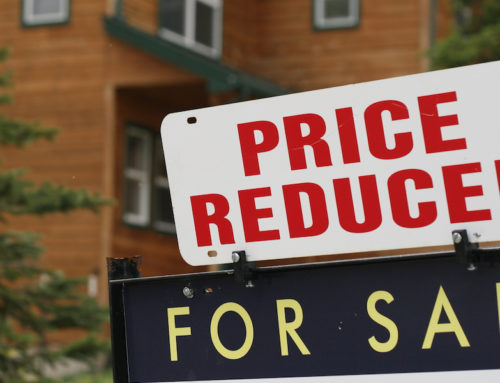As all investments go, every investor seeks to make the best returns possible. Return on investment (ROI) is an assessment of an investment’s cash flow (how much did you put in, and how much are you getting back in return?). Experienced investors know that calculating the ROI from their properties is vital to determining how well their investments are performing overall.
Despite there being many ways in determining a property’s ROI, calculating the ROI can be as simple as using a fairly standardized formula. The ROI of a property can be equal to its annual profits, determined after its expenses, divided by the cost of the investment.
ROI = net income (gross income – costs) ÷ costs
For example, a property may have cost $50,000 to acquire. This property generates a profit of $6,000 per year, minus all of its yearly expenses. Thus, the ROI of this property is 12%. In short, one of the ways of calculating the ROI of a property is to divide the property’s net income by the amount invested in the property.
However, determining the ROI of a property involves calculating both the income and cost of the investment. To do this, you need to consider a number of different financial factors that contribute to a property’s ROI.
What factors affect the ROI of a real estate investment?
- Debt (mortgage or loans)
- Tax and insurance
- Maintenance and rehabilitation
- Equity
- Rental income
Debt
To calculate the ROI of your properties, you first have to determine the total cost of your investment. While some investors may have paid out-of-pocket when purchasing a property, others may have received financial assistance in the form of mortgages and loans.
One of the biggest costs of a property investment is any debt paid or to be paid throughout the course of your investment. Be it a monthly mortgage payment or loan, these financial expenses are crucial to calculating your ROI, since these payments are deducted from your property’s gross income to determine the net income.
Things like the amount that the bank has provided you, the term of the loan, and its interest rate are among the important considerations that need to be made when calculating the net income. Knowing these particular details can accurately calculate the ROI of your property as time passes.
Tax and Insurance
Property tax and insurance are important factors in determining a property’s ROI. This is due to taxes and insurance being among the numerous expenses that need to be accounted for when calculating ROI.
Both property tax and insurance are similar in the sense that they vary between property, city, and province. They are two expenses whose determination involves a third party—be it an insurance company or a provincial property assessment organization. For example, calculating your annual property tax requires an assessment from a provincial organization to determine the value of your property which is then multiplied by the total tax rate, while an insurance rate is determined by a particular insurance company.
Maintenance and Rehabilitation
Throughout your many real estate investments, you’ve probably come across repairs or undergone renovations. From fixing faulty plumbing to rewiring shoddy electrical work, repairs are a common occurrence for investors—especially those who use house flipping as a way to generate quick profits. Professional repairs aren’t necessarily cheap; and depending on the amount of repairs needed for a specific property, this expense can be quite costly.
Renovations, on the other hand, are typically used across all investors who seek to increase the value of a property with the intention of selling it at a higher price. Rehabilitation encompasses the various expenses, including repairs and renovations, that are used to ‘rehabilitate’ the property and increase its value.
On top of that, electrical and plumbing systems need to be routinely maintained to ensure that amenities remain functional. It is for this reason that maintenance and rehabilitation costs need to be considered when determining a property’s ROI.
Equity
As all property owners know, properties can change in value over time. Ideally, any real estate investor would want to build equity within their properties, which is done as investors pay off their loans or mortgage and as the market value of their property increases.
This is obviously crucial to investors, since the higher the equity, the more money investors are able to use for future investments. Property equity is a critical factor to determining a property’s ROI, as it is a result of paying off loans which attributes to the increased income of a property.
Another method, known as the cost method, involves calculating a property’s ROI by dividing the equity of a property by its costs. However, property equity must first be calculated. This is done by subtracting the total cost of the property from its market value.
For example, a property may have been acquired for $300,000. Renovations and repairs cost investors roughly $25,000, which increased the market value of the property to $400,000. With the total cost of this property being $325,000, the equity would be worth $75,000.
Therefore, the ROI can be calculated using the cost method by dividing the property’s equity by its cost. In that case, the ROI in the above example would be calculated as follows:
ROI = $75,000 (equity) ÷ $325,000 (cost) = 23%
Rental Income
Tenants are typically a property’s main source of income. The amount of tenants that are renting out your property, the amount you charge your tenants, and the frequency at which you charge them—be it monthly or annual—all contribute to your property’s income, which affects its ROI. Thus,having an occupancy rate that is close to 100% with each occupant helping you generate a suitable monthly or annual income is critical to receiving a better ROI and increasing profits.
While there are a myriad of ways to calculate ROI, there are various factors that need to be considered to accurately determine it. Luckily for you, there are numerous online resources, like this ROI calculator for real estate property, that help provide experienced and novice investors alike with the information that they need.
Sources
https://www.investopedia.com/articles/basics/11/calculate-roi-real-estate-investments.asp
https://www.fool.com/retirement/2017/05/25/how-to-calculate-return-on-investment-for-real-est.aspx
https://www.propertygeek.net/article/rental-yield-calculations/
https://www.inbrampton.com/how-high-are-bramptons-property-taxes-compared-to-other-cities
https://www.quora.com/What-is-the-difference-between-home-insurance-and-property-insurance









